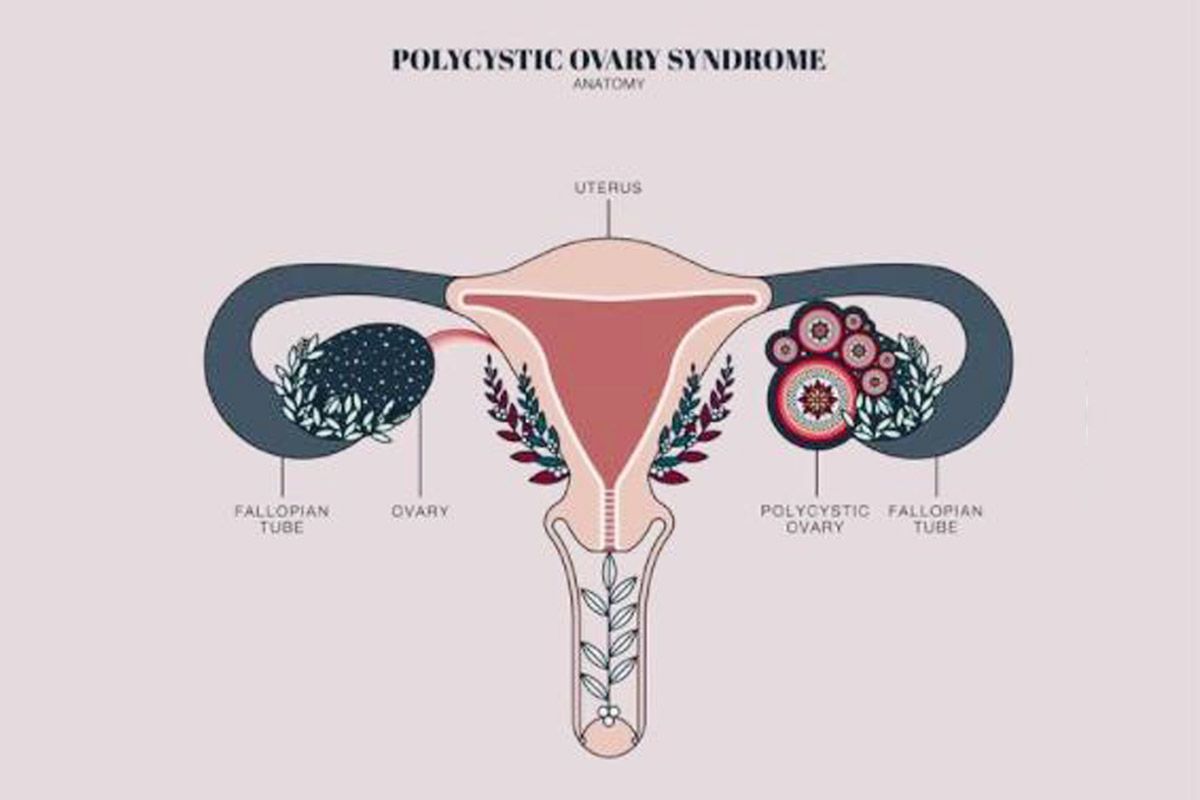Polycystic Ovary Syndrome (PCOS) and Polycystic Ovarian Disease (PCOD) is a hormonal imbalance disorder affecting more than 20% of women in India. PCOS/PCOD is typically earmarked by irregular periods or by no menstruation at all. Women typically have multiple cysts in their ovaries, caused by an overproduction of hormones called androgens. Most women suffer from overweight and its associated complications. Lifestyle changes, dietary modifications play a major role in dealing with this hormonal disorder and in losing weight. Women particularly when their symptoms are not controlled may also be at greater risk for heart disease, endometrial cancer, Type II diabetes, and high blood pressure which in turn affects their fertility and causes complications during pregnancy.
Many women with PCOS or PCOD find they are able to manage their symptoms and reduce their risk of other medical concerns by controlling their diet and lifestyle choices. Simple lifestyle tweaks can often help improve your overall health while reducing the anxiety that can significantly impact one’s ability to conceive. Rohit Shelatkar, VP at Vitabiotics, Nutrition and Fitness Expert shares tips on how you can improve fertility if you are suffering from PCOS/PCOD:
-Weight Management:
It’s important to approach any weight loss in a healthy manner, avoiding crash diets, detoxes or other methods of rapid weight loss. At the same time, one should focus on the overall lifestyle change which can reasonably sustain to keep the weight off in the long run. This includes regular exercise and reducing smoking and alcohol intake. Additionally, regular physical activity is critical for managing PCOS and PCOD. Not only will these changes improve the chances of getting pregnant, but they can also keep one healthier.
-Consumption of Balanced Diet:
There is growing evidence that many of the foods one consumes can impact the chances of becoming pregnant. This seems especially true in women suffering from PCOS and PCOD. A high-fiber diet offers many benefits to women with PCOS or PCOD, such as lower insulin levels, and antioxidants that fight to lower inflammation, and better gut bacteria. Foods such as berries, whole grains, seeds, and lentils are fulfilling and wholesome. Apart from fiber, protein-like fatty fish and paneer provide adequate sources of energy required for the daily intake. It’s important, meanwhile, to avoid processed foods such as bagels, white rice, crackers, and sugary sodas that can cause insulin to spike. Women should also add fertility supplements to get the nutrients missing from their daily diet.
-Manage Stress:
When dealing with infertility, keeping stress at bay can be a challenge. But long-term stress can have a negative impact on hormones and fertility. Research has long established the link between stress and infertility. High levels of stress trigger the release of the stress hormone cortisol. Some of the more effective ways to manage stress include meditation, exercise, yoga, and counselling.
Though the condition can make pregnancy more complicated, having a baby is not impossible and women should not lose hope. Women with PCOS or PCOD who want to become pregnant can consult with a healthcare provider for diagnoses and treatment options.
